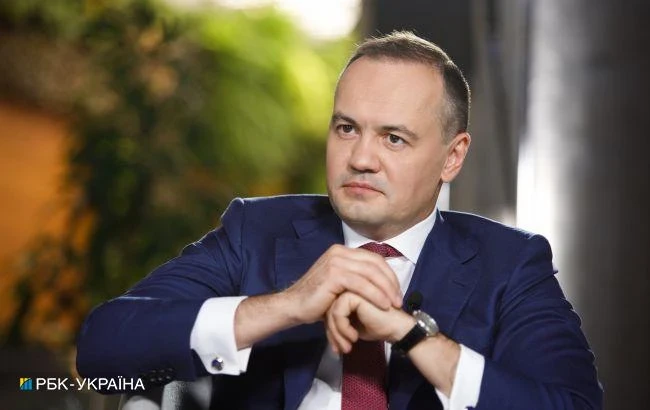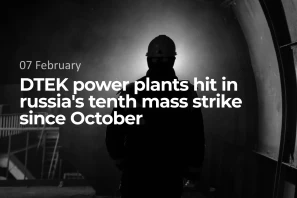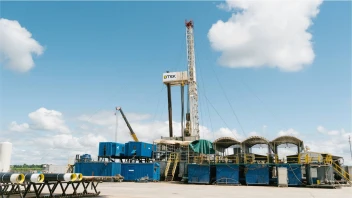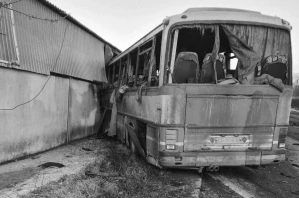– Our meeting is taking place a year and two weeks after the launch of the new electricity market. What has this year brought? It saw mutual multibillion-dollar debts in the industry. It saw market participants accusing each other of price manipulation. It saw the resumed import of electricity from Russia. It saw mines being shut down due to a surplus of coal and a decline in industry. Have I missed something?
– I think you forgot to mention that this year we also have more than 400 market participants. So this year, consumers got the opportunity to choose their electricity producer. Consumers can even choose the price at which they buy electricity. This year, an electricity producer can see its end user, and not just the state company, which used to buy the entire volume of electricity.
Therefore, I would view what happened during this year through different lenses. For sure, everything you said can be thought of in negative terms. However, a year ago we were highly optimistic and the reason was not only the new market, but also the new political system in the country.
– The expectations were…
– The expectationswere huge. There were new faces. They corresponded to the principles and values articulated by the President of Ukraine and his team. Market players and Ukrainian and Western investors were enthusiastic.
Which is why, I would not narrow the conversation to the market launch. Many thought, and it was in line with some of my thoughts, that we restarted the country. And, of course, this year should not only be assessed by how much speculation we had in the market, but, perhaps, on a larger scale. I would also like to comment on how we spent this year.
In an interview, when I was asked how Western investors feel about the new government, the President and the new team, I answered that their attitude can be measured in the capital value of those who invest in Ukraine. And last fall, we saw the reduction of rates. This means that investors became increasingly confident in the country, which is a very important feat for our country.
– Do you have the same confidence today?
– Unfortunately, attitudes are changing today. And I think that this is the most… I do not want to use bad language… difficult thing we have faced this year, and it will have consequences.
– Maxim Viktorovich, every change in attitude has its name. What is the reason for such a change? Who is the reason for such a change?
– You know, I believe the reason for a change in attitude in terms of electricity is, unfortunately, lack of experience, lack of professionalism, and populism. Moreover, if you look at this year philosophically, at some point, a trend, applause and slogans were above the rational vision, rational thinking, and willingness to make difficult decisions. And, I accept it in some other industries, but not in the energy sector.
– You know, I asked you this question, because under the previous government, more than a year ago, very often officials wanted to appear to be active, but not actually be. Too much hype, attempts to sell themselves and seem better than they really were. Does the current government also want to appear to be active, and in truth, not be? What do you think?
– Power is a generalized image. I am convinced that the President sets the tone and sincerely believes in right things for Ukraine. And his values are of great importance. I also discussed this with Western investors.
The greatest achievement of the state is that it’s being run by a person with such a set of values. But for this you need to have another 10, 15 or 20 people nearby with the same set of values and the same views.
They also need to be real professionals whom the President trusts. Yes, it’s possible that one can be a professional, but have his own vision and corporate interests. Professionalism and trust are the things that were and are most important for managing such large systems, in particular the energy sector.
– Could you now specify the key spheres that require some change in management, appointment of professionals, or, perhaps, new personnel. What are the anchor points?
– Well, the new energy market model was launched a year ago. This is a European model welcomed by our European partners. Some thought that we were not ready and that maybe it should have been postponed. However, all these arguments were new 12 years ago. Thankfully, we started this process anyway.
Of course, like in any major reform, improvements were needed. We identified certain flaws, in order to both react to and fix them.
But, the key role here is played by the regulator, the national regulator. Had the national regulator fulfilled its tasks by at least four on a scale from one to five, investors would have had a different outlook and perspective of the Ukrainian energy sector today._33.jpg)
– As for the Ministry. We see that our government has changed. In fact, there were three ministers of energy in a year. The current Minister of Energy, Olga Buslavets, in an acting Minister. Does this affect the industry’s performance? Do you feel that somehow… at least politically, this is probably not right in the current crisis situation for the industry?
– I don’t think it’s crucial. We have had previous examples of people who worked effectively for two or three years in the capacity of “acting” managers.
There is a more important question. Unfortunately, there is no coordination and involvement of authorities in the management of the country’s energy sector. And by that, I mean the regulator, Ukrenergo, the Ministry, state companies as Energoatom, Centrenergo, and so on.
Unfortunately, this situation was artificially brought to a crisis. Yes, we had a warm winter, a decrease in industrial production and electricity consumption, and the pandemic.
However, we have been heading towards this crisis since October, last year. Perhaps, at first, these were some small steps and solutions that no one really understood, except for people engaged in the industry.
But, these decisions led to the consequences we are facing today. And we can only overcome this crisis if we act like a team. But we have none.
– This crisis. Is it lack of professionalism or someone’s design?
– First of all, it’s a new market. Everyone learned to work in the new market. And we cannot say that our team, namely the market players, the regulator, and the Ministry, was ready for the market forces and their impact on the situation. So, I would say that the first factor is lack of experience. In terms of energy, we have found ourselves in a completely different world to that 20 years ago.
It is probably a lack of professionalism. One can overcome the lack of experience with time. It is hard to beat unprofessionalism. Unfortunately, there were no those people who had to be in their places to quickly cope, quickly gain experience, quickly build a dialogue with market players, build trusting relationships, and listen to market players. If the team, including market players, had worked, we could have avoided such a situation.
– Correct me if I am wrong. You say that if the quarantine, an abnormally warm winter and certain consequences had not happened, problems in the industry would have arisen anyway?
– Definitely. Perhaps, we would have faced them a bit later, but they would have appeared anyway. Look, all the players are suffering today. We cannot say that only DTEK or only “green” investors are affected. There is not a single player on the energy market who does not suffer and does not criticize the existing situation.
That is why, something is fundamentally wrong. Therefore, those responsible for such a situation should ask themselves the question: why is this happening and what should they do to change it.
Maxim Viktorovich, we also heard an estimate, including in high offices, that the falling economy and a decline in industrial production would have still happened regardless of quarantine or pandemic. Do you think, as the private sector does, that this is inevitable taking into account the country’s economic conditions and its dynamics at the end of last year?
– In general, probably yes. You know, the change of government could somehow affect the work of certain economic systems, as was the case in our country. I believe that all this can be resolved. And one of the most important remedies is investor confidence.
Why am I talking about this? Because DTEK has been on the market for 15 years. We are the largest investor in the country’s energy sector; we have invested over 10 bln dollars. And I look at the situation more like a national investor. But I also understand the attitude of Western investors.
We can only talk about the economic growth, new jobs, and the growth of industrial production if an honest, trusting relationship with investors is built, and if our country protects these investors.
Unfortunately, we are witnessing a change in the priorities of authorities, a rise in populism, and the desire to earn some kind of political dividends using large companies, which destroys the cultivation of this trusting relationship.
And, of course, when looking at Ukraine on the map, a Western investor will pay attention to how the national investor is treated. And looking at those things happening to the national business, how can a Western investor believe in our country?
– One of the key problems of the industry, which is being today discussed by different market participants, is the cost of electricity for the population. Its production cost is higher than the price for the population. Do you think that the government is ready to start a discussion about some step-wise price increase in order to find the ways to deal with the crisis of the industry? It is unlikely that the progress can be made without such a decision.
– You know, I would look at the ways to overcome the crisis and to financially balance the industry in a single package. Of course, tariffs for the population are one of the crucial components. Perhaps, we can call it social injustice when 3% of the population consumes more than 500 kWh, which is 18% of the total electricity volume, and pays the lowest price in Europe.
On the other hand, those households consuming up to 100 kWh are actually people with low income; there are 41% of them, and they consume 12% of electricity. Why should everyone pay the same tariff? I believe this is social injustice, and not that tariffs should be raised or be determined by the market.
I believe that people who can afford it should pay the full market price for electricity, and not the price established by the state and other market players, primarily Energoatom... This is a step towards the market economy, which we should take today.
I am not saying that it should be shock therapy, as with gas prices, when they increased sharply and caused an extremely negative reaction. However, what we are witnessing today is that gas prices on the market dropped 2-2.5 times, which had an immediate impact on the bills of our consumers.
Generally speaking, the gas market is based on the market rules. From August 1, even the population will switch to market relations and at a rather low gas price existing on the world market.
I believe that in the near future the government should make decisions to move and increase electricity tariffs for those segments of the population that can pay the market price for electricity, and protect 41% of consumers by allowing them to pay at today’s tariffs or by supporting them in any other way. That is when this situation, among other things, will improve.
But we also need to look at how the market works in general and what market mechanisms exist today. A lot of problems resulted from tolerating speculation, tolerating, as they say, selling the air, tolerating artificial lowering of the market price, and so on. It seems to me that today overcoming these problems is more important than raising tariffs for the population.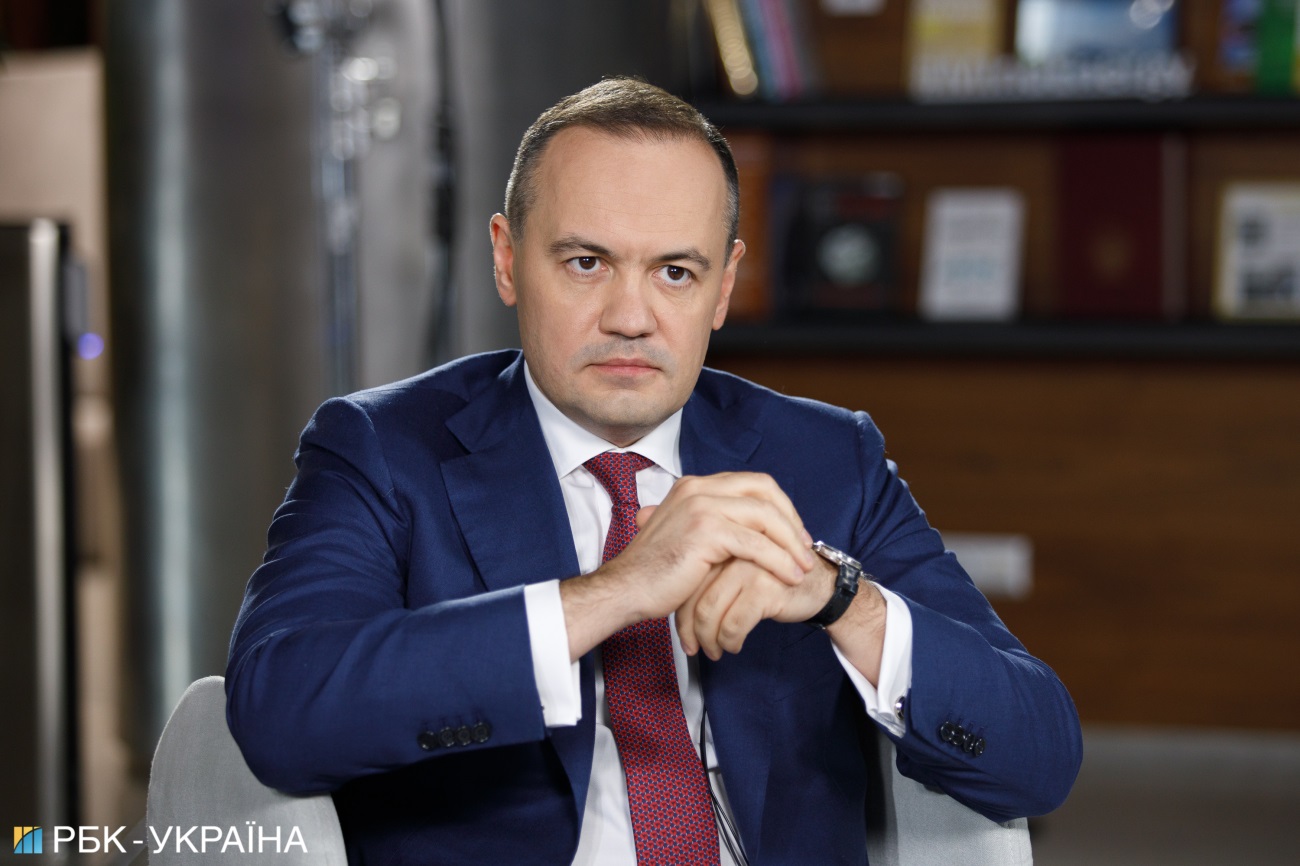
– Do you think that the current composition of the government headed by Denys Shmyhal will cope with this task? After all, they have been working since March. Will they be able to do it, in your opinion?
– I believe that they will not be able to do this without cooperation with the regulator and other market participants, namely the regulator, Energoatom, Ukrenergo, and the Cabinet of Ministers. Now, they will be able to do it only if they create one team and move in one direction, adopt quick decisions and quickly implement them. If they do not, then I doubt.
– Do your comments on lack of professionalism and populism apply to the Prime Minister?
– You know, I would not say that the Prime Minister in the person responsible for solving the energy crisis. Thankfully, based on the rhetoric that I heard in the anti-crisis task force, he understands the energy sector and knows the key directions in which we need to move.
Still, the responsibility lies with the acting Minister of Energy. And basically, she “brings the ammunition” to the Prime Minister. I see that the Prime Minister listens to these proposals and does everything possible to value investors.
I believe that the conclusion of a memorandum with investors in “green” energy is the Prime Minister’s personal achievement. His participation in the negotiations, 3 meetings that he personally held - I do not remember any such actions for all the 12 months of discussions and negotiations. And the result was obtained. I think that his role is important from the point of view of unification and enabling of such teamwork.
Still, the market and the industry must admit that, as has historically been the case, the Minister of Energy should lead this team, and, I hope, achieve results.
– I cannot help asking. After all, the Prime Minister was associated with your company; he worked in DTEK’s organizations. Is it true that you lobbied for his appointment?
– First of all, I am proud that people who once worked at DTEK have become leaders of our state. I think that somehow, just a little bit, we had a hand in this thanks to our Academy DTEK, our training programs, and the culture of our company.
I did not meet Denys Anatoliyovych that very often. We met at general meetings with the directors of power plants. Before he left the company, I met him in the summer of 2019 at the company day, at a party. We parted ways that day. Later he joined the civil service.
– Ivano-Frankivsk Regional State Administration, if I remember correctly.
– Yes. The second time we met was when he became Prime Minister. The idea that we somehow lobby for someone is another of the myths surrounding our company. Well, of course we are not lobbying for any appointments. This is not the way to create one’s business.
– One more question. You are right that the Minister of Energy should be the leader of this process. We now have an acting Minister who is also associated with you. This is the first part of this question. The second part is… we all understand why there are so many officials in the capacity of acting managers in the government. It is because the Verkhovna Rada is unable to approve a Minister without the word “acting” in front of it. The reason is simple: competing interests in the Parliament. What kind of sentiments, according to your information, are there in the Verkhovna Rada? In case you addressed this issue. Is the parliament ready to support the appointment of a full-fledged Minister of Energy today or not?
– It is hard for me to comment on the People’s Deputies. From what I know and what I have heard, the current acting Minister is on a certain probationary period. And, probably, the reaction and attitude of the People’s Deputies depend on the results achieved by Olga Anatolievna. This is my personal opinion.
These are such results as the recovery from the crisis, normalization of the energy market, the normal interaction between all market participants and state agencies, and, perhaps, constructive work with a relevant committee of the Verkhovna Rada.
It seems to me that the People’s Deputies should see all this in order to believe, and it should not be some kind of tug-of-war or lobbying, or stuff like that. I believe that the achieved progress will be the most important criterion for the People’s Deputies.
– What about Olga Anatolievna being associated with your group?
– I would like to know why this is so. Unfortunately, Olga Anatolievna does not have the word DTEK in her biography. Although, I believe that she would get a good position in our company if she wanted to. She has been in the energy sector and in the Ministry for a very long time. Of course, somewhere at the middle level, our managers interacted with her as with the head of a relevant department. It is difficult for me to comment on the reasons for such allegations.
Again, let us get back to myths. For example, the idea is being sold that DTEK allegedly wrote a plan, an action plan for the government. Now, this is interesting. It was 8-10 months ago that we publicly presented our vision and initiatives for overcoming the crisis. You can take 8 or 7 of our initiatives… 6 of them were implemented by the regulator. I do not think anyone would link the regulator to us. But out of 8, they only completed 80% of the job. If only there were two more decisions, it would be better.
Why is that? It is because there are no other solutions. Let us say, without false modesty, that the most powerful team in the energy sector works for this company. It is not that we have just invited the best professionals on the market.
It is because in the early years of DTEK, we realized that our priority value is people. We created a system and a consistent approach so that it does not remain a mere slogan.
Both people and the team that are now working at DTEK are the result of 15 years of investment in the staff development. I believe that 70-80% of senior managers and mid-ranking employees have worked for at least 10 years in our company.
That is why, of course, the best expert examination takes place here. Of course, we feel and understand this market. And what we offer... There are no other recipes.
You can somehow change the configuration, but fundamentally no one will come up with anything new. Had we introduced and implemented these measures sooner, we would have had fewer problems in the market._10.jpg)
– If you look at what decisions the government has made in recent months, some of them directly concern your company. For example, decisions regarding coal import quotas. Or, for example, the obligation of Ukrenergo to give preference to coal-fired units in dispatching. Wouldn’t you agree that these decisions were in your favour after all?
– It seems to me that if we talk about the decisions you mentioned, they are no longer in favour of our company, they are more in favour of Ukraine’s energy independence. Generally speaking, if we talk about the coal industry, we have to honestly answer one question, since these decisions concerned, first of all, the coal industry: do we need the coal industry in the country or not?
We have two options. The first option is to become one hundred percent marketeers. Whoever offers the cheapest resource wins. If electricity from Russia is cheaper than producing it at coal-fired power plants in Ukraine, let us buy this electricity from Russia.
By the way, this is what was announced by the representatives of Ukrenergo and the Ministry last autumn. We had this discussion.
This is a pure market economy, and maybe the consumer likes it. Why should I pay more if I can buy electricity cheaper from Russia or from Belarus? Or I can buy coal there cheaper and then deliver it here. This is one side of the coin.
The other side of the coin is the history of Ukraine. You remember when we had gas for 50 dollars, and then it became 550 dollars. And Ukraine had to pay 550 dollars. Therefore, the consumer can ask “What’s happening here? I previously paid 50 dollars, and now it is 550 dollars”. 550 is a 100% political price. Both the state and the government cannot cope with this.
This is a different side of what happens when we want to be marketeers. However, our neighbours are far from market relations. And if we say that there is import from Russia, then let’s export to Russia, and let’s export to Belarus.
But what do we hear from the other side? No, we have enough of our own electricity, we do not need yours; we will figure it out ourselves.
Okay. At the same time, we are trying to build European market relations, but our partners act differently. If we are talking about the Western countries, we are working with them, and we have power exchanges with Hungary and Slovakia. We have market relations there. We fully support this. However, here is where we think it is unfair. Markets must be open. This is the first thing.
Second, it is the coal industry. Today, it is obvious that we have a capacity surplus. Surplus of coal. The cost of this coal is 7, 8, 10 or 15 thousand hryvnias per ton. And here the state must answer, either we are in sync and support our own coal producer, or we give up our coal industry and close it down. But this should be a commitment. The state cannot say “we are closing it down” without answering the questions of tens of thousands of people who live in these territories “What’s next? How can we live with mines shut down?”
And the recent conversations and the presence of miners here; the same question was asked. People came to ask questions about their future. Not about their present, but about their future, the future of their children and cities.
Until the state knowingly and responsibly finds answers to these questions, we will have these endless conversations: either we buy the cheapest product, or we save our industry. There are enough examples in other countries. We need a proper balance.
– You mentioned that we have a surplus. One might say that DTEK has abandoned its coal production capacities for a certain time. What is the situation now? What is the condition of your mines? Do people go to work, or is there downtime?
– Let me remind you what happened here. Unfortunately, this spring starting from April 1, we had to suspend the operation of Dobropilliacoal. Then it was the turn of Pavlohradcoal, since there was an oversupply of coal due to the drop in our company’s production.
Let’s demystify the idea that the nuclear generation is being reduced in order for DTEK to produce more electricity. I will disappoint those saying this. In the first quarter, the decline in production of our coal-fired power plants amounted to 36% compared to last year. Naturally, we had a surplus of coal.
Since we operate in a market economy, we cannot just produce coal. We do not get any subsidies and nor have we ever received subsidies from the state budget. We paid attention to the balance of consumption and as a consequence, we were forced to suspend the operation of Pavlohradcoal.
And again, as for the discussion about the forecast balance of electricity generation. We all needed clarity on how much electricity the country will consume and who will generate this electricity, namely, Energoatom, coal generation, “green” generation, and so on. When we got some clarity in terms of the forecast balance, we were able to launch Pavlohradcoal. But according to this forecast balance, practically the entire Dobropilliacoal resource should’ve gone to the state-owned company Centrenergo, in addition to the state coal bought out by the company.
Centrenergo chose its own business approach: both in May and June, contrary to what was in the forecast balance and in the fuel balance, the company decided to burn gas. And of course, we couldn’t resume operation of Dobropilliacoal.
After everything that happened, we signed a contract with Centrenergo and, in fact, on Monday, we resumed and are gradually resuming the operation of Dobropilliacoal mines. They are already beginning to operate. This contract was discussed a lot as well.
And again, referring to the myths. The known Rotterdam+. We concluded our contract according to this formula. It was a very clear and obvious decision, since this is a formula and no one can interfere with it.
It is a reflection of what is happening on the market. This is import parity, the fairest pricing mechanism.
Moreover, the price under this contract is UAH 1.660 per ton, and state-owned mines sell coal to Centrenergo for UAH 1.950. Here is the answer to all questions
– Centrenergo stated that when they offered to buy coal on the basis of import parity, the Ministry of Energy, represented by the acting Minister, didn’t support this idea. It was a public statement. But when the initiative came from DTEK, the acting Minister said that these were bilateral contracts and that you were to decide. That is why Centrenergo points out some double standards. Do you agree with that?
– I believe that Centrenergo is playing a double game here, since today it is managed by the State Property Fund, not the Ministry. Point one: if the Ministry somehow communicated and set standards, there probably would be no gas burning. There would be burning of Ukraine’s coal. So, I believe that the Ministry’s influence on Centrenergo is minimal or non-existent.
And the fact that this is a conversation between two business entities is true. That is, these were our negotiations. We presented our position, we signed a contract, we let people get back to work, and people set to work. We are now exporting coal and, I hope, everyone will fulfil this contract. Once again, as long as the prices are being set, there won’t be anything good in terms of overcoming the crisis.
Why did we support import parity and a pricing policy independent of the mood of officials in the Ministry, the regulator or anyone else? Because this is the market. If prices go up, then we earn more. If prices go down, then we earn less.
Today, the same applies to gas. Last year we sold gas for USD 230-240. Today, we are selling it for USD 100-110. No one is outraged and no one spends too much time discussing it, because this is the market price. It reflects the pricing on foreign markets and it is there. The faster we do the same in the coal industry, the better it will be for everyone._30.jpg)
– Let’s talk about “green” energy. The topic has been more than relevant in recent months. You say there should be more private investment. How are investors reacting to the current situation, taking into account that conditions of negotiations with investors regarding a change in the “green” tariff are constantly changing? What stage are the projects that were started earlier at? Have they been put on hold, or is the business willing to take risks even in the present conditions?
– It seems to me that today it is easier to go to a casino and bet on red than to invest in “green” energy in Ukraine. Unfortunately, the situation is that critical, and it is true.
Let us get off the topic a little bit. I believe that one of the important strategic decisions in Ukraine, and it was made quite early in comparison with other countries, is that we must dramatically increase the share of “green” generation in the country’s overall electricity production. This technology is needed to replace coal-fired power plants and nuclear power plants that will be phased out of operation.
So, the conditions we are facing today have been created. They are, in fact, good conditions in terms of investment security. If the tariff is fixed, it is nominated in the Euro, protected by express law provisions, and so on.
– Now they say that these conditions are too good.
– What makes us, Ukrainians, special? We make laws, and then we forget to obey them. Today, when “green” investors are paid 4-5% for the generated electricity, we are witnessing a direct violation of the rule of the law guaranteeing 100% payment. And all the good things that we say about Ukraine, about the investment climate, about “encouraging investment” are being destroyed by such examples.
Conditions were created, and investors started to invest. By the way, DTEK was one of the first companies to invest in “green” energy. Not many people know that. Everyone thinks that we jumped into the last carriage somewhere in 2018-19. But I would like to remind you that in 2008 we started a Botievo wind farm project. 200 MW farm was built in 2013. It was long before the “green” generation boom. This was our conscious strategic choice.
We understood perfectly well that in 20-30 years we must find a replacement for our coal generation. And the best technology is “green” generation. Unfortunately, in 2013 we had to stop the implementation of our plans and we resumed them only when the situation in Ukraine changed. We began the extensive construction activity in 2017.
During this time, technologies were becoming cheaper, and the tariff was becoming lower. This was established by law, and the tariff gradually decreased. A further point, we were the ones insisting on the need for immediate introduction of auction incentive system in order to take this issue off the table. In some way, our company is a victim of circumstance, since we operate in a tightly regulated business, and, to be honest, what we want is to break loose and work in the real market.
Unfortunately, the government did not do its homework. “Green” auctions have not been launched; that did not work out. Therefore, investors continued to operate under the law adopted in April 2019. DTEK was going to do the same. We had generation capacity of 1 GW and we planned to build one more. To that end, we spent more than 20 million dollars on the development of such projects. From the site to meteorological monitoring, met masts, calculations, and so on.
In September and October last year, the discussions started about “too high” tariffs and the need to reduce them. Of course, for a person who is not that interested in the energy sector, reducing tariffs sounds great. And that is all the professional discussion for those in the market. Still it was a mild discussion.
While still being optimistic because of a new team and a new President, and being charged up with this optimism, we entered the capital markets in order to talk about Ukraine and the need for investment, as well as to persuade funds to buy “green” bonds. We raised EU 325 mln by issuing these debt securities.
We were asked cautious questions: somebody says that the regime would change and so on. We say: well, of course, it will change, because we are moving to auctions. I remember the assurances of both the President and the Prime Minister that there will be no retrospective revision of tariffs. The worst thing someone can do for investors in any of the country’s industries is to change the rules retrospectively.
However, this rhetoric has intensified. At the same time, the state complied with its obligations. But since March, the state has suspended payments, which, in fact, violates the guarantees given to “green” investors. It was done while arguing that the tariffs were too high. I believe there is no precedent for this.
We could not find a similar case in European practice, when investors voluntarily sign a memorandum to reduce tariffs, to write off hundreds of millions of dollars spent on development because of the reduction or termination of the construction period for new facilities, and so on. The trade in question is UAH 80 bln of consumer savings.
The memorandum has been signed. And now the parliament says that it was sold too cheap. What are we talking about here? I believe that if the parliament does not support the President and the Prime Minister, and this law and the guarantees set forth in the memorandum are not adopted, it will be a disaster for the investment climate in Ukraine.
– Are you talking about the provisions of bill No. 3658?
– Yes, I am.
– Your colleague in the industry Ihor Tynnyi said that they are trying to “kill” this bill, let us put it like that, before its second reading, by introducing a lot of amendments into it. Who won’t benefit from it? Who opposes it?
– I think that some industrial groups are against it. Some “social justice warriors”, populist MPs, are against it. People living for one or two years, who found themselves somewhere near either an industrial group or parliament, are against it. That is, these are not opponents of “green” generation. These are opponents of the country’s future.
One can, of course, not pay the debts and not sign agreements with the IMF; one can, roughly speaking, bail on “green” investors. All this, of course, is possible. This is a decision of the state. But what legacy do we leave for those who study at the Academy, or entered a university, or who are here in Unit city? What will they do here? Will they even stay in Ukraine?
Today’s decisions determine their future. Today, there is a desire to somehow “capitalize” on these decisions, but our future generations and our country will those paying for such a “capitalization”. And if we can let such uncivilized “loud-mouths” or “lobbyists” be in charge, what hope is there for the future of Ukraine?
There are USD 325 mln in “green” bonds that I mentioned. With half of this issue, we refinanced a completed project, and we saved the other half for further construction and investments. Today, the investment of this money in Spain, Italy, and Portugal is on our agenda.
This is the money of investors that any country, any government is after. They are here in the accounts. And because of such attitude towards investors, we are looking for ways to support the economies of other countries. Well, what future can we talk about?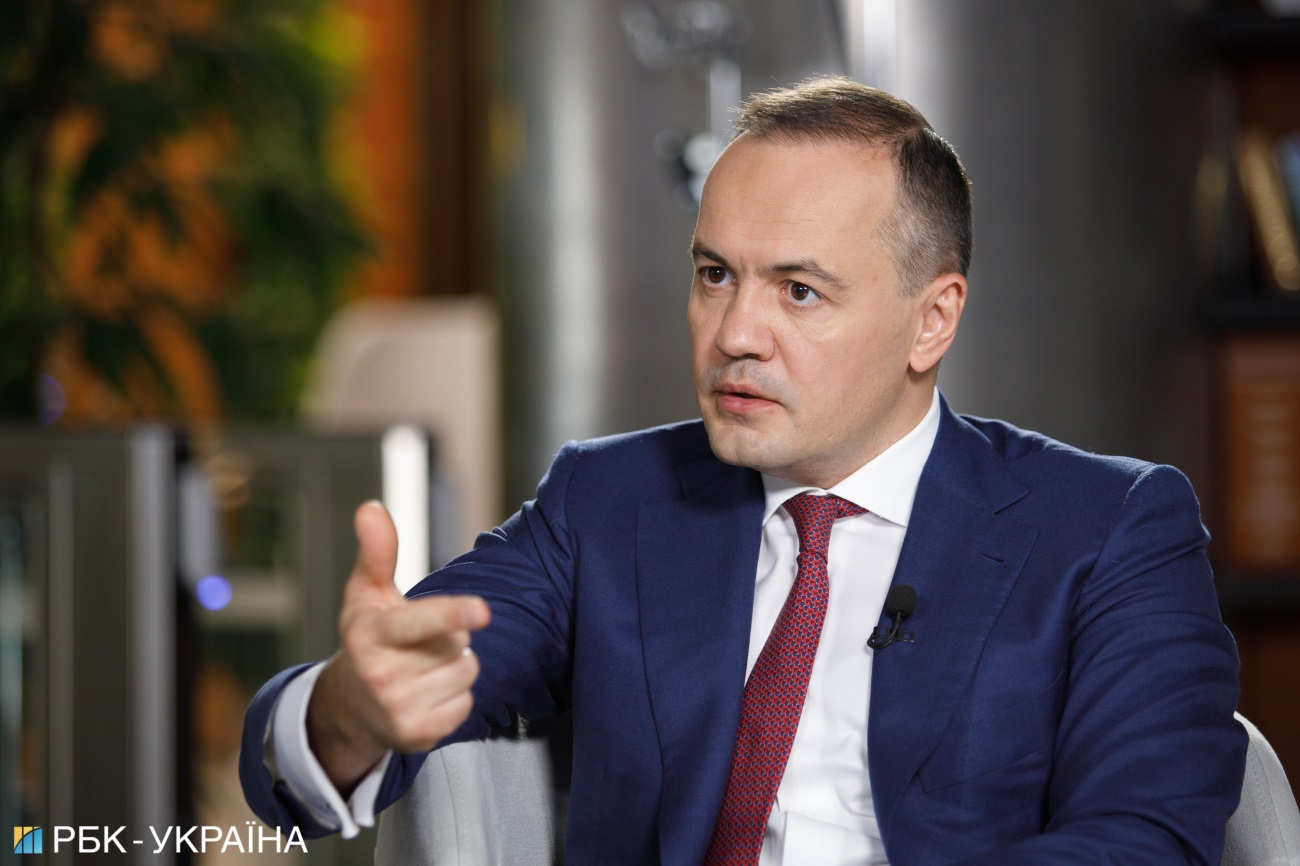
– If the law is adopted, will you pursue your agenda regarding, in particular, investments in “green” energy, or will you take a break anyway?
– First of all, we will look more seriously at alternatives in Europe, as I already said. And one of these days, we will build a team. In September or October, the first pilot projects for the construction of a wind farm or a solar power plant in Italy or Spain will be presented to the Supervisory Board. This decision has already been made. Accordingly, some of that money will be invested.
We will save some of it for participation in auctions and monitor the development of the situation here. If it improves, I believe that we will find the way to navigate it. At the moment, there are no prerequisites for further investments in the energy sector, that is, in “green” generation in Ukraine.
I really hope that all the People’s Deputies will listen to the arguments and obligations that the state has today. And they should take it seriously.
– Maxim Viktorovich, let us move from the general to the specific. When you talked about financial and industrial groups that could interfere with this situation, you meant the Igor Kolomoiskyi’s organizations. Am I right?
– It is more about large electricity consumers. I can understand their position that there is the cost component. I am also responsible for the company’s financial performance and the cost component. But the approaches to the cost price can be different.
You can invest in energy efficiency; you can help, and not hinder the establishment of a new market with single source contracts. And if you have a basic consumption profile, then you can buy from large electricity producers at a price below market price. I mean, this is a civilized way to work on your cost price.
If you work on your cost through lobbying resources, the media, and some populist figures, who, I believe, are random people in positions they held, then it is probably not quite right.



